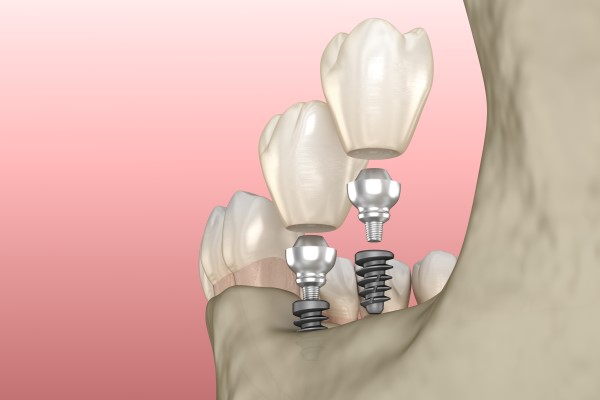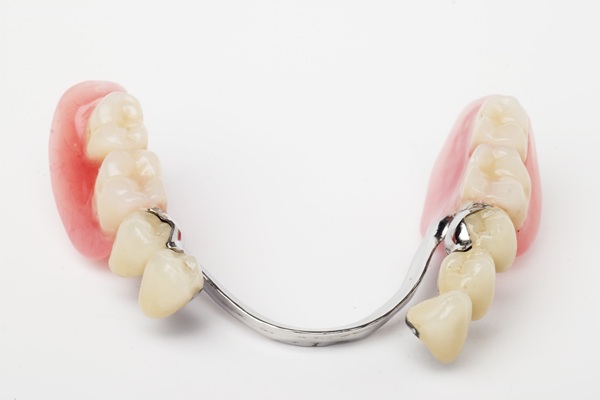A Quick Guide to Dental Implant Surgery

Having dental implant surgery usually starts as a tedious process. Yet, when the procedure and aftercare are done correctly, patients always reap the benefits. You should get a clearer picture of what happened during dental implant surgery. Let us review this quick guide.
Before the dental implant procedure
A strong and healthy jawbone is a basic prerequisite for dental implant surgery. If the patient’s jawbone is not that healthy, the dentist will recommend a bone graft. During this procedure, the dentist will take healthy bone from another area of the patient’s body and graft it to the patient’s jawbone. After the patient heals, the dental implant surgery will push through.
Before surgery day, the patient will receive preparation tips for the procedure. The patient should stop drinking alcohol and smoking tobacco months before the surgery. These habits tend to delay healing by impairing blood oxygenation and circulation. Dentists stress that smoking tobacco and drinking alcohol are the main causes of dental implant failure.
During the dental implant surgery
While sitting in the treatment chair, the dentist will prepare the patient by applying a local anesthetic to the implant site. The patient will feel numbness in the implant site and its surrounding area. To make the injection painless, the dentist will apply a numbing gel first. Then, the local anesthetic will penetrate the gum. Although the patient will stay awake throughout the procedure, there will be no pain. The patient will only feel vibrations or pressure.
If the patient is fearful or too anxious, the dentist will administer a sedative. Once the anesthetic takes effect, the dentist will incise the patient’s gums to access the jawbone. The titanium rods need a good anchor. Because of this, the dentist must drill the patient’s jawbone to level and smoothen it.
The dentist will use a few drills to create a pilot hole into the patient’s jawbone. The pilot hole will be the guide for drilling in the dental implant later. The dentist can adjust the hole’s diameter and depth if necessary. To keep the bone cool while drilling, the dentist flushes the drill area with sterile saline or water.
When placing the implant, the dentist will use a special drill head or a small wrench. Since placing the titanium rod is quite a challenge, there could be some discomfort on the part of the patient. There will be no pain. When the rods are in the jawbone. The dentist will close up the implant site with stitches.
After the dental implant procedure
The stitches must stay for about 10 days, depending on how quickly the patient heals. After healing, the dental implant will have up to six months to fuse with the patient’s jawbone. The patient should maintain good oral hygiene while this happens. Bacteria should not infiltrate the implant site, or implant failure will happen. Once fully osseointegrated, the dentist will attach the porcelain dental crowns.
Through proper guidance from your dentist, your dental implant surgery will be a success
If you are a good candidate for dental implant surgery, you should be familiar with what happens before, during, and after the procedure. Your dentist and the dental staff can answer more of your questions, as well. After all, you can never have too much information. It may be nerve-racking at first, but the mentioned quick guide can help you go through your dental implant surgery with flying colors.
Are you considering a dental implant in the Lincroft area? Get more information at https://lincroftvillagedental.com.
Check out what others are saying about our dental services on Yelp: Dental Implant in Lincroft, NJ.
Recent Posts
Dentists generally recommend dental implants as a natural choice for replacing missing teeth. If you play sports regularly, especially contact sports, you may be worried about continued participation after having your lost teeth replaced. This article covers what you need to know about playing sports with dental implants.Every sport has required skills, levels of fitness…
If you are missing at least one or more teeth, you may qualify as a candidate for dental implants. Dental implants are the best option for replacing missing teeth. Having missing teeth can harm your oral health, and untreated tooth loss can interrupt your chewing ability and even affect the structure of your mouth. If…
Dental implants are one of the most popular forms of tooth restoration due to the range of benefits they can offer. By learning more about why so many are choosing dental implants to replace one or more missing teeth, patients can determine if they are the best option for them. Every patient has a different experience…
Individuals who are missing teeth from periodontal disease, an injury, or other reasons can choose between dental implants and bridges for restoring uniformity and function with their bite. A dental implant is a surgically inserted tooth root holding a dental crown in place. Bridges are used to close gaps where one or more teeth are…


